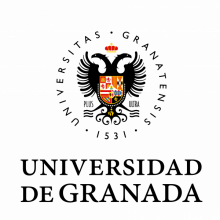
The UGR is a public comprehensive research university (1531), with approx. 56,000 students, 3,600 academics, 1,900 administrative and support staff. Its 27 Faculties and Schools and 124 Departments offer 62 undergraduate degrees, 106 Master’s degrees and 28 doctoral programmes organized in three overarching doctoral schools, covering all fields of knowledge. It merges with the city, its schools and campuses distributed throughout Granada in its five urban campuses which give the city a lively student atmosphere. It also has campuses in the North African cities of Ceuta and Melilla, making it a truly intercontinental institution.
The UGR is internationally renowned for its excellence in diverse research fields. Its nearly 500 research groups work in all areas of scientific knowledge, collaborating closely with other national and international leaders in their fields, as well as key industries. It is currently (2018) ranked third in Spain according to the Shanghai ranking and is the leading regional university in the south of Spain, with 34 disciplines appearing in the top 500.
The UGR is deeply integrated in its local and regional environment and is committed not only to quality and excellence in education and research, but also to the transfer of scientific, technical and artistic knowledge to society.
The UGR is a welcoming cosmopolitan university. In regard to exchanges programmes, every academic year more than 3.000 students are received under the different international mobility schemes (Erasmus+, UGR non-EU mobility programme…). Beyond its leading position in mobility, the UGR has played a leading role in the longest-standing of European university networks, the Coimbra Group. It is also a member of other networks and associations such as AUIP, UNIMED, EUA, IAU or the AUF.
The UGR has a strong commitment to internationalization of all its activities: teaching, research, knowledge transfer, innovation and outreach. Mobility for all sectors of the university and of all kinds plays a central role in the institutional international strategy. The UGR is the most popular destination among European exchange students (Erasmus+) and the European leader in figures of both incoming and outgoing Erasmus students with more than 800 bilateral and multilateral mobility agreements with institutions all around the world.
In the era of Digital Citizenship, ICT are present in all aspects of our lives. These tools can support mobility during all its lifecycle by creating communication channels among all agents (students, academics and staff) providing, supporting and involved with it. From the Mobility user’s perspective, it can enrich everyone’s experience by allowing them to get all agents involved with them digitally (other students, teachers and supporting staff, from both their own institution and their receiving institution) and to collect all evidences that allow to evaluate and assess the experience properly. This environment also allows to extend participation of those users who ever be involved in Mobility by letting them support other users experiences.
Contact: intlinfo@ugr.es
